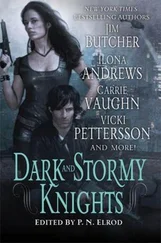“Well, no,” she said. Jeanine saw that her mother’s lower lip was trembling slightly. Jeanine wanted to say something to the man but couldn’t think of anything polite.
“So we’ll just ask you for this hundred.” He laid his hand flat on the bills and slipped them from the table and into a tin cash box. “And wait for the next hundred.”
Elizabeth took a firm grip on Jeanine’s upper arm and they left the office.
They drove on down Highway 80 into Mineral Wells. Hotels up on the mountainside dominated the town. The Crazy Water Hotel, the seven-story Baker Hotel. They had been built when Mineral Wells became famous for its sulfur springs and mineral waters. The springs were said to cure insanity and the water was bottled and sold as Crazy Water and Upper 10 Lithiated Lemon. Even movie stars came to the baths to cure whatever it was they suffered from, nervous disorders or immoderate thirst, a desire to be seen, an unslaked curiosity about Texas. Marlene Dietrich had slunk around the halls of the Baker, along with the Three Stooges and Clark Gable. Blurred photographs of the stars appeared from time to time in the Mineral Wells newspaper. Not one of them had ever had a home sold on the courthouse steps for taxes, Jeanine thought. Or ate beans twice a day. She stopped in front of the Keeners’ little house on Fourth Street and saw her mother turn at the door before knocking and wave her gloved hand.
At the farmers’ market four children and a young mother sat on the curb with a basket of shelled pecans. They had built themselves a fire in a small sheet-iron stove. Two of the children were girls and they were barefoot and sat cross-legged with their cotton skirts pulled over their knees to keep warm and played the slap-hands game. Down in the valley where the green grass grows sat little Edna as sweet as a rose. A thin black man made hand-carved wooden puppets jump around on top of an orange crate. Farm women sat on the bumpers of trucks and sold eggs and very yellow butter that smelled of wild onions and a boy stood with a calf ’s lead-rope in his hand holding up five fingers. A blind man sang a song about waiting around a water tank for a train to take him to California, his face lifted to the daytime moon and one hand out in a dramatic stage gesture.
Jeanine bent her head and pressed past all these people until she found a man in a buckboard wagon who was selling old clothes. In the jumbled heap Jeanine found a dress of garnet twilled silk that must have belonged to somebody that weighed three hundred pounds and then either died or lost weight and didn’t need it anymore. She also found something for Mayme; a dirty remnant from a bolt of juniper green tabby-weave silk, and some sheer curtains that could be used for linings. Then she paid ten cents for an old squirrel fur coat. They would use it somehow. Winter was coming.
A crazy man called Oilfield Willie stood at one end of the market calling out the demonic names of Hitler and preached on the deep strata of oil and salt water.
“I am Ozymandias, king of kings!” he shouted. His ragged suit hung on him in folds. “I have brought my sword to bear on the Oil Kings of the netherworld and upon the arteries and the hearts of coal, and I declare war on the trains of Russia and the underwater torpedoes at sea, for the devil and his soldiers are marching as to war! My children, gird up your harps and bagpipes and play the music of the great conflicts and the great strivings or the angels of iniquity will take you all down into the places where the dead hide and are turned as dark as low-grade crude! Mussolini and Hitler are waiting with skeleton rockets. Rise up! Listen! Take heart! Be not afraid! Lift up your hearts and be not dismayed, my children. I am the oil and the truth and the nitroglycerin and none can stand before me, my children.” People dropped a nickel or a dime into his hat, which sat turned up on the pavement.
Ross Everett walked up with a young boy following him. He wore a dark three-piece tweed suit and a good gray Stetson. He had a can of Arbuckle’s coffee under his arm. The boy went to stand in front of the dancing puppets and as he stood there the thin black man made a Red Ryder puppet wring both arms around and around on their pivot.
“Jeanine Stoddard,” Ross said. He lifted his hat and replaced it. “Son, this is Miss Stoddard.”
The boy turned to her and lifted his own hat and turned back to the puppets. Now Little Annie Roonie was jigging across the orange crate. The square was crowded with people selling, and the sky over Mineral Wells was reddish with dust blown down from the Panhandle. A wind snaked around through the streets and the hotels and fluttered the skirts of the girls.
“How do you do, Mr. Everett,” she said. She was surprised to see him, she had forgotten he lived somewhere close to Mineral Wells. She wadded the sheer curtains into a ball and then snatched up the squirrel fur coat and the stained crepe and mashed it all together with frantic motions. She did not want Ross Everett to see her pawing around among old used clothing. “How good to see you again.” Jeanine felt strangely formal and reserved toward him now that she was grown up and all of twenty years old.
He smiled as she tucked the wad under one arm. “I heard y’all had moved back,” he said. “I’m sorry to hear your dad passed away.”
“Well, how did you hear that?”
“Race people,” he said. He stood aslant with one hand in his coat pocket. His suit coat was worn. He looked like he hadn’t bought a new suit since about 1920.
“Race people. Well.” She didn’t want to talk to him for some reason. Or she did but some other time when the world had been better to her and her sisters and her mother, when they were not so desperate for money, when she didn’t have a bundle of rags under her arm. “Yes, we did, we moved back to our grandparents’ old farm.”
“You still have that horse?”
“Smoky Joe? Yes, we have him.”
“Are you selling?” He glanced down at the material in her hands and then he turned to the boy and said for him to buy one of the puppets if he wanted. The boy reached for the Red Ryder cowboy figure.
“No,” said Jeanine. “I reckon we’re going to race him one of these days.” She smiled as if she were very confident.
Everett nodded. He reached into his pocket for a nickel and handed it to the boy. Then the boy said he wanted a soda and Everett handed him another nickel. “I could buy myself a beer for that,” he said. He turned back to Jeanine. “Good luck trying to get a match,” he said. “Nobody’s going to match up against a girl.”
“No, they’ll match up against the horse ,” said Jeanine. “Hope y’all are doing well.”
“We’re doing fine,” he said. “Just in on a monthly trip into town. Good day, Jeanine.” The boy came after him as he stepped up on the curb and they went on with their coffee and their puppet.
Jeanine saw schoolchildren running past. It must have got to three-thirty and school was out. She wanted to go into the Oil King Drugstore and buy herself something. A Dr Pepper, an ice cream, a shaker of talcum powder shaped like a champagne glass. But she would not. The holes in her shoes were like the holes in everybody’s shoes but still she was ashamed of them. She seemed to be walking on dirt. She stepped by the little girls and the tin stove with its wavering column of smoke, up onto the sidewalk and walked on past the drugstore. A man in a porkpie hat came toward her and suddenly seized her by both shoulders.
“Jeanine Stoddard!” he shouted.
“What?” She started backward.
“It’s me! M-m-milton Brown!” He was a short young man in a pair of spectator shoes, flagrant wingtips, and a wide tie with his hair sticking up in front and glasses so thick they magnified his eyes into unsteady blue marbles. They were round as half-dollars. “Oh Jeanine, Jeanine, look at this face!” He stood back and threw his hands wide to present himself and his pinwheel cowlick to her. He tipped his hat and then took the wad of clothes from her arms in order to see her entire form there before him. “Do you remember me? Have you not read my n-n-newspaper columns?”
Читать дальше












